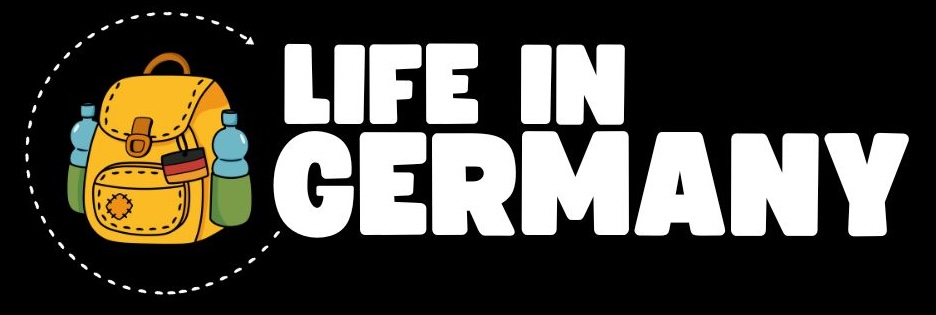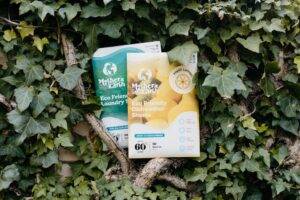Understanding a language goes beyond grammar and vocabulary; it also involves grasping local slang. In Germany, many words have taken on unique meanings, often influenced by brand names or regional dialects. This article will explore 10 German slang words that you won’t fully understand unless you’ve lived in Germany. Each term highlights the quirks of everyday conversation in this vibrant culture.
10 Must-Know German Slang Words
- 1. Tempo – The Tissue of Choice
- 2. Dixiklo – The Portable Toilet
- 3. EC-Karte – The Debit Card ️
- 4. Sewa – The Paper Towel
- 5. Tesa – The Tape You Need
- 6. Maggi – The Flavor Enhancer
- 7. Labello – The Lip Balm
- 8. Leukoplast – The Band-Aid
- 9. Edding – The Permanent Marker ️
- 10. Prittstift – The Glue Stick ️
- Conclusion: Embracing the Slang of Germany
1. Tempo – The Tissue of Choice
One of the first German slang words you’ll encounter is “Tempo.” This term refers to tissues in Germany, akin to how “Kleenex” is used in North America. When someone asks for a “Tempo,” they are simply asking for a tissue, and you’ll find these handy during cold and flu season. It’s not just about the word; it’s about the experience of pulling one out of your bag when needed. You’ll quickly learn to carry a pack of these in your purse or backpack!
2. Dixiklo – The Portable Toilet
Next on the list of German slang words is “Dixiklo,” a term you’ll hear at festivals or construction sites. This is the German equivalent of a portable toilet. While in other countries, you might just say “porta-potty,” in Germany, you’ll likely hear “Dixiklo” or “Toy Toy.” It’s a quirky term that adds a bit of fun to an often uncomfortable situation!
3. EC-Karte – The Debit Card ️
If you’re planning to navigate the banking system in Germany, familiarize yourself with the term “EC-Karte.” This translates to “debit card” and is commonly used in everyday transactions. You’ll hear it often when asking about payment methods at stores or restaurants. For example, if you inquire about using a credit card and are told they only accept “EC-Karte,” you’ll know to whip out your debit card instead.
4. Sewa – The Paper Towel
At a party, if someone asks for “Sewa,” don’t be confused! This word refers to paper towels in Germany. Unlike “Saran wrap,” which is a brand name in North America, “Sewa” is purely functional. It’s a handy term to know when spills happen!
5. Tesa – The Tape You Need
Another interesting German slang word is “Tesa,” which refers to adhesive tape. Just like “Scotch tape” in Canada, “Tesa” has become synonymous with tape in everyday language. You might hear someone say, “Can you pass me the Tesa?” when they need to fix something quickly.
6. Maggi – The Flavor Enhancer
“Maggi” is a well-known brand in Germany, famous for its flavoring products. Whether it’s for adding taste to pasta or soups, asking for “Maggi” means you’re looking for that extra kick in your dish. Just like some people swear by certain spices, others in Germany might be loyal to Maggi.
7. Labello – The Lip Balm
If your lips start to chap, just ask for “Labello!” This term refers to lip balm in Germany, similar to how “Chapstick” is used in North America. You’ll find this brand in virtually every pharmacy, and it’s a must-have for anyone living in the country.
8. Leukoplast – The Band-Aid
When it comes to cuts and scrapes, Germans often refer to “Leukoplast” instead of using the generic term “band-aid.” This brand name has become so popular that it’s used in everyday conversation. If someone asks for a “Leukoplast,” just know they’re looking for a bandage!
9. Edding – The Permanent Marker ️
In Germany, if you need a permanent marker, just ask for an “Edding.” This brand has become the standard term for permanent markers, much like “Sharpie” in other regions. It’s a fun example of how brands can shape language and everyday interactions.
10. Prittstift – The Glue Stick ️
Finally, we have “Prittstift,” which refers to a glue stick. This is another brand name that has slipped into everyday vocabulary. If you’re in a classroom or arts and crafts setting, you might hear someone asking for a “Prittstift” to finish their project.
Conclusion: Embracing the Slang of Germany
Understanding these German slang words is essential for anyone looking to integrate into German culture. Each term reflects a unique aspect of daily life, making conversations more relatable and enjoyable. If you want to dive deeper into the German language, consider using resources like Rosetta Stone to enhance your learning experience.
As you continue your journey in Germany, remember that language is not just about words; it’s about connection. Embrace these German slang words, and you’ll find yourself fitting in much more smoothly.
Are there any other German slang words you’ve encountered?
Made with VideoToBlog





